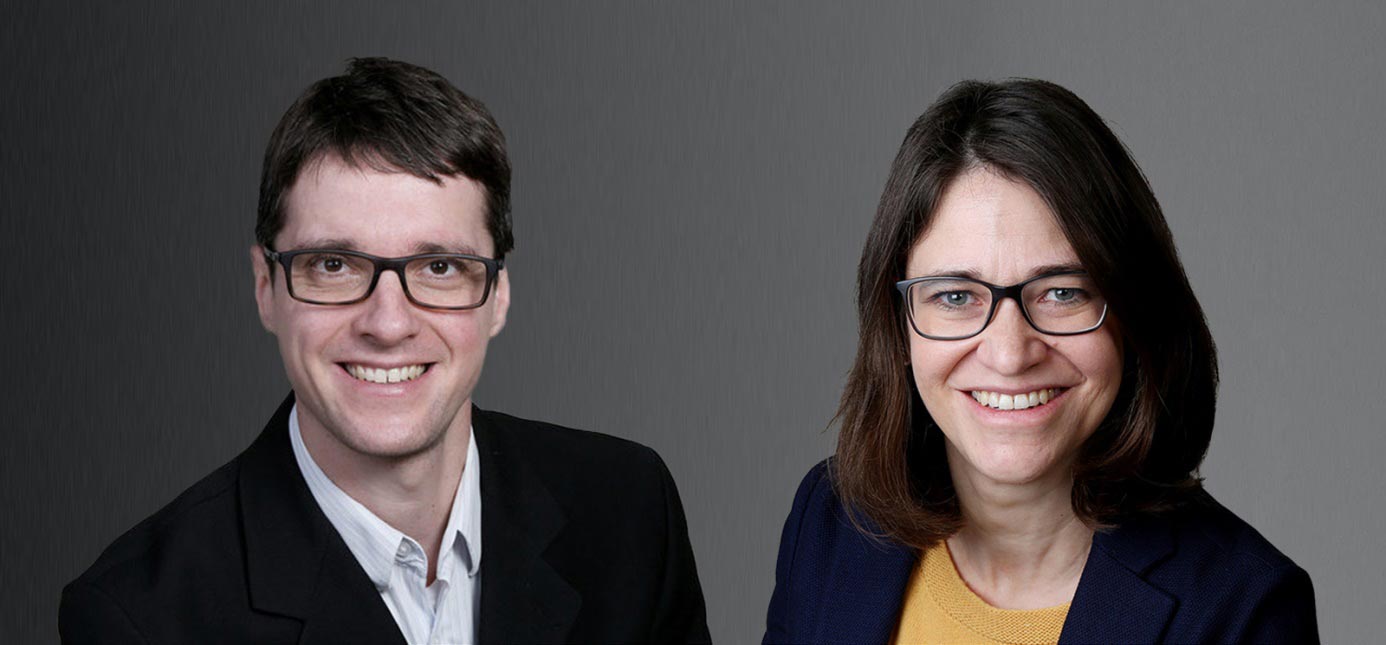Open Access increases the range of influence
Dr Nadine Schlömer-Laufen and Dr Stefan Schneck talk about their experience with Open Science

Three key learnings:
- Open Access publications increase the international range of influence – especially if they are in English.
- Open Access repositories such as EconStor are used by editors to acquire authors.
- The exchange with companies and multipliers can provide valuable impulses for your own work.
What are your positive experiences in the context of Open Science?
NSL: The Institut für Mittelstandsforschung (Institute for SME Research) publishes its series on EconStor, the Open Access repository for economics. We have noticed that our Working Paper series, our only English i.e. international format, has steadily increasing downloads. In 2018, we counted 1,800 downloads. In 2020, there have been more than 3,100 (see EconStor statistics). And the year hasn’t ended yet. We also have more international visibility. About a third of all readers are in Germany, but one in six is in the USA. We even have downloads from the UK, France, China, India or South Africa. That is quite amazing for our field of SME research.
StS: I would like to add that our Open Access publications are downloaded much more often than the corresponding articles in journals and magazines that demand fees.
How important is the language here?
StS: At the Institut für Mittelstandsforschung we normally publish in German. But some of our papers are published in English, and here we see immediate effects. The most downloaded IfM paper had most downloads from the USA (21%), followed by the UK (13%) and Germany in third place with 6%.
Did you notice any distinctive characteristics?
NSL: It is very exciting to watch where our working papers end up. We have noticed for instance that journals and editors of compilations search for our working papers and contact authors directly. In one case we have profited directly: my colleagues and I had published an article in our Working Paper series, but didn’t exactly know where else to submit it. But we had no time to continue working on it. One day the editor of a compilation called us to ask if we would like to submit it for his compilation – provided it had not been submitted elsewhere. So we did. Such a “success story” also happened with another contribution published in our Working Paper series.
Do you make your research data available?
StS: Yes, the IfM Bonn follows the example of other, sometimes much bigger institutions, and has been making its research data available for scholarly purposes since 2019. The datasets are available as SPSS or Stata files. However, we are still at a very early stage and have only begun to promote the offer.
Knowledge transfer is very high on the agenda of the Institut für Mittelstandsforschung. What do you draw from your communication activities for yourselves?
NSL: We draw a lot from our communication activities, although we are committed to knowledge transfer already by our statutes. The IfM is not a classic research institute. It was founded in 1957 on the initiative of Ludwig Erhard and its mission is the study of the condition, development and problems of small and medium enterprises, and to make the results of these studies accessible to the public. Thus the transfer of our research findings into the public discourse is an essential part of our range of tasks. This means that the management of the institute and all its scientists regularly write contributions for national newspapers and business magazines. We give talks at scholarly and non-scholarly conferences and also at practice-oriented events. This exchange with practice is an important sounding board and input for our research. Only from such conversations can we learn which themes are important for SMEs and what is worrying family businesses. Teaching on the other hand is a kind of auxiliary or leisure activity for us, just the opposite of working at a university.
The interview was conducted on November 2, 2020.
About Dr Nadine Schlömer-Laufen and Dr Stefan Schneck:
Dr Nadine Schlömer-Laufen is project manager at the Institut für Mittelstandsforschung (IfM) Bonn. She is a member of the Editors’ Advisory Board of the IfM Working Paper series. Her key research activities are succession planning, corporate life cycles and family businesses.
Contact: https://www.ifm-bonn.org/ueber-uns/team/profil/nadine-schloemer-laufen
Dr Stefan Schneck is research assistant at the Institut für Mittelstandsforschung (IfM) Bonn and a member of the Editors’ Advisory Board of the IfM Working Paper series. His research interests are Entrepreneurship, growth of firms and SME policy.
Contact: https://www.ifm-bonn.org/ueber-uns/team/profil/stefan-schneck
